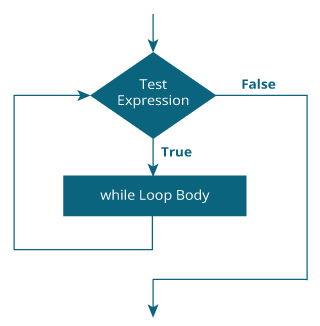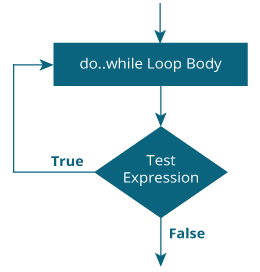
In programming, loops are used to repeat a block of code until a specified condition is met.
C programming has three types of loops.
In the previous tutorial, we learned about for loop. In this tutorial, we will learn about while and do..while loop.
The syntax of the while loop is:
while (testExpression) < // the body of the loop >To learn more about test expressions (when testExpression is evaluated to true and false), check out relational and logical operators.

// Print numbers from 1 to 5 #include int main() < int i = 1; while (i return 0; >Output
1 2 3 4 5
Here, we have initialized i to 1.
The do..while loop is similar to the while loop with one important difference. The body of do. while loop is executed at least once. Only then, the test expression is evaluated.
The syntax of the do. while loop is:
do < // the body of the loop >while (testExpression);
// Program to add numbers until the user enters zero #include int main() < double number, sum = 0; // the body of the loop is executed at least once do < printf("Enter a number: "); scanf("%lf", &number); sum += number; >while(number != 0.0); printf("Sum = %.2lf",sum); return 0; >Output
Enter a number: 1.5 Enter a number: 2.4 Enter a number: -3.4 Enter a number: 4.2 Enter a number: 0 Sum = 4.70
Here, we have used a do. while loop to prompt the user to enter a number. The loop works as long as the input number is not 0 .
The do. while loop executes at least once i.e. the first iteration runs without checking the condition. The condition is checked only after the first iteration has been executed.
do < printf("Enter a number: "); scanf("%lf", &number); sum += number; >while(number != 0.0);So, if the first input is a non-zero number, that number is added to the sum variable and the loop continues to the next iteration. This process is repeated until the user enters 0 .
But if the first input is 0, there will be no second iteration of the loop and sum becomes 0.0 .
Outside the loop, we print the value of sum .